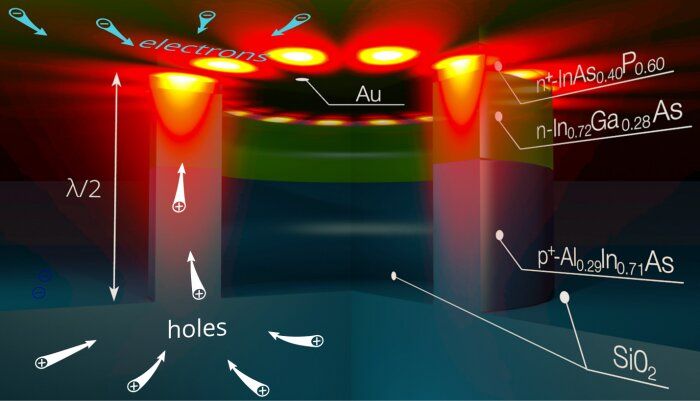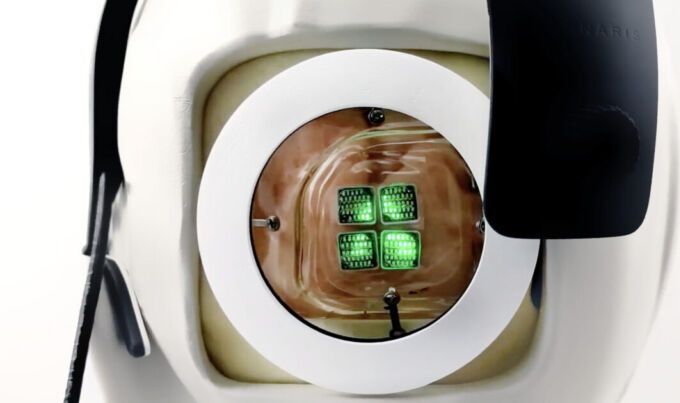The Always Home Cam foils a very sloppy burglar.
Ring has given a brief demo of its flying security camera drone in a new ad. The Always Home Cam will be available next year and can be controlled with your phone.
The Always Home Cam foils a very sloppy burglar.
Ring has given a brief demo of its flying security camera drone in a new ad. The Always Home Cam will be available next year and can be controlled with your phone.

Recommending content, powering chatbots, trading stocks, detecting medical conditions, and driving cars. These are only a small handful of the most well-known uses of artificial intelligence, yet there is one that, despite being on the margins for much of AI’s recent history, is now threatening to grow significantly in prominence. This is AI’s ability to classify and rank people, to separate them according to whether they’re “good” or “bad” in relation to certain purposes.
At the moment, Western civilization hasn’t reached the point where AI-based systems are used en masse to categorize us according to whether we’re likely to be “good” employees, “good” customers, “good” dates and “good” citizens. Nonetheless, all available indicators suggest that we’re moving in this direction, and that this is regardless of whether Western nations consciously decide to construct the kinds of social credit system currently being developed by China.
This risk was highlighted at the end of September, when it emerged that an AI-powered system was being used to screen job candidates in the U.K. for the first time. Developed by the U.S.-based HireVue, it harnesses machine learning to evaluate the facial expressions, language and tone of voice of job applicants, who are filmed via smartphone or laptop and quizzed with an identical set of interview questions. HireVue’s platform then filters out the “best” applicants by comparing the 25,000 pieces of data taken from each applicant’s video against those collected from the interviews of existing “model” employees.


Researchers from the Moscow Institute of Physics and Technology and King’s College London cleared the obstacle that had prevented the creation of electrically driven nanolasers for integrated circuits. The approach, reported in a recent paper in Nanophotonics, enables coherent light source design on the scale not only hundreds of times smaller than the thickness of a human hair but even smaller than the wavelength of light emitted by the laser. This lays the foundation for ultrafast optical data transfer in the manycore microprocessors expected to emerge in the near future.
Light signals revolutionized information technologies in the 1980s, when optical fibers started to replace copper wires, making data transmission orders of magnitude faster. Since optical communication relies on light—electromagnetic waves with a frequency of several hundred terahertz—it allows transferring terabytes of data every second through a single fiber, vastly outperforming electrical interconnects.
Fiber optics underlies the modern internet, but light could do much more for us. It could be put into action even inside the microprocessors of supercomputers, workstations, smartphones, and other devices. This requires using optical communication lines to interconnect the purely electronic components, such as processor cores. As a result, vast amounts of information could be transferred across the chip nearly instantaneously.
A YouTube engineer invented an off-road ‘Not-A-Wheelchair’ for his wife to give her more freedom than ever before.
Zack Nelson, better known as JerryRigEverything, is known for testing out the durability of smartphones, looking at drones and conjuring other cool, wacky stuff.
His partner, Cambry Kaylor, is a regular contributor on the channel. In 2005, she had an equestrian accident which led to her being paralysed from the waist down. With Zack’s help, her injury doesn’t hold her back whatsoever.
We saw the Apple Watch 6 and iPad Air 4, but no iPhone 12 announced at Apple’s latest event. Here are the highlights! ⌚📱.

It’s essentially the guts of a smartphone combined with brain-implanted micro electrodes, as TechCrunch reports. The “Gennaris bionic vision system,” a project that’s more than ten years in the making, bypasses damaged optic nerves to allow signals to be transmitted from the retina to the vision center of the brain.
The system is made up of a custom-designed headgear, which includes a camera and a wireless transmitter. A processor unit takes care of data crunching, while a set of tiles implanted inside the brain deliver the signals.
“Our design creates a visual pattern from combinations of up to 172 spots of light (phosphenes) which provides information for the individual to navigate indoor and outdoor environments, and recognize the presence of people and objects around them,” Arthur Lowery, professor at Monash University’s Department of Electrical and Computer Systems Engineering, said in a statement.
What has been shaping the human mind throughout the history of mankind? What is the difference between mind and consciousness? What links quantum physics to consciousness? What gives rise to our subjective experience? What drives our accelerating evolution?
If you’re eager to familiarize with probably the most advanced ontological framework to date or if you’re already familiar with the Syntellect Hypothesis which, with this series, is now presented to you as the full-fledged Cybernetic Theory of Mind, you should get this book two of the series which corresponds to Part II of The Syntellect Hypothesis: Five Paradigms of the Mind’s Evolution. This volume two contains some newly-introduced and updated material if compared with the originally published version and can be read as a stand-alone book. At the same time, it is highly recommended to obtain The Syntellect Hypothesis as the original coherent version of the same theoretical framework instead of waiting for all five books to come out and if you don’t need extra detailing.
Over the course of human history, from the first bonfire to today’s smartphones and hyperloops, we have designed tools, and tools designed us back by shaping our minds. Technology isn’t just something outside ourselves, it’s an innate part of human nature, like sex, sleeping or eating, and it has been a major driving force in evolution. Tool using, along with language, bipedalism, and cooking (quite literally) is essentially what has made us human.

